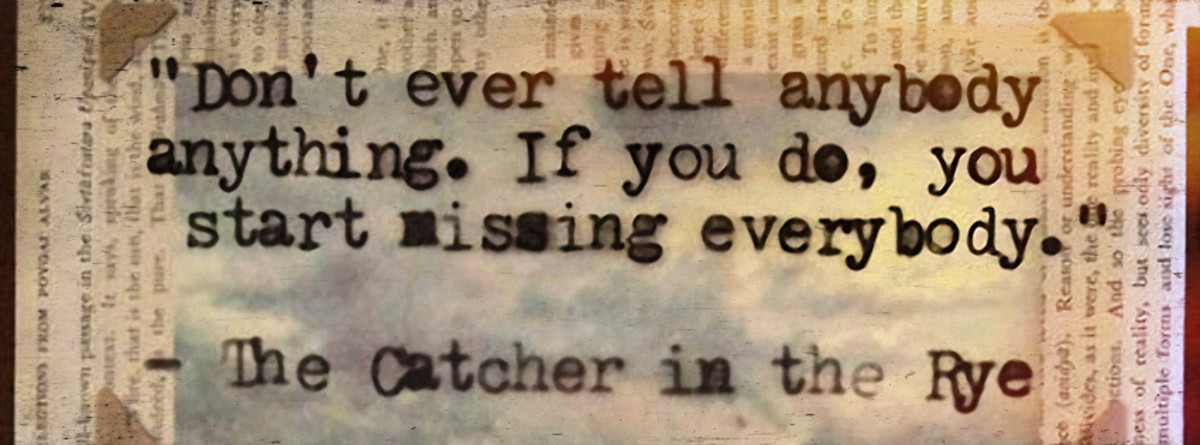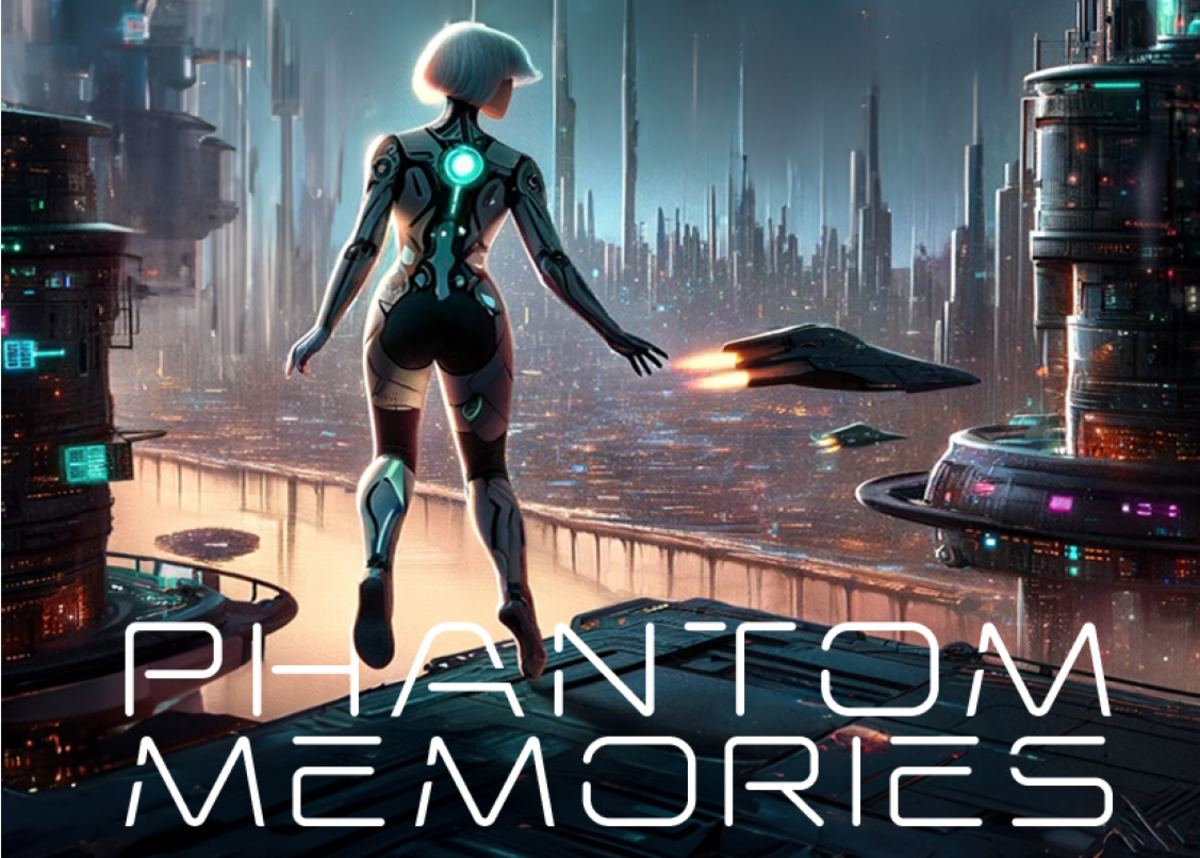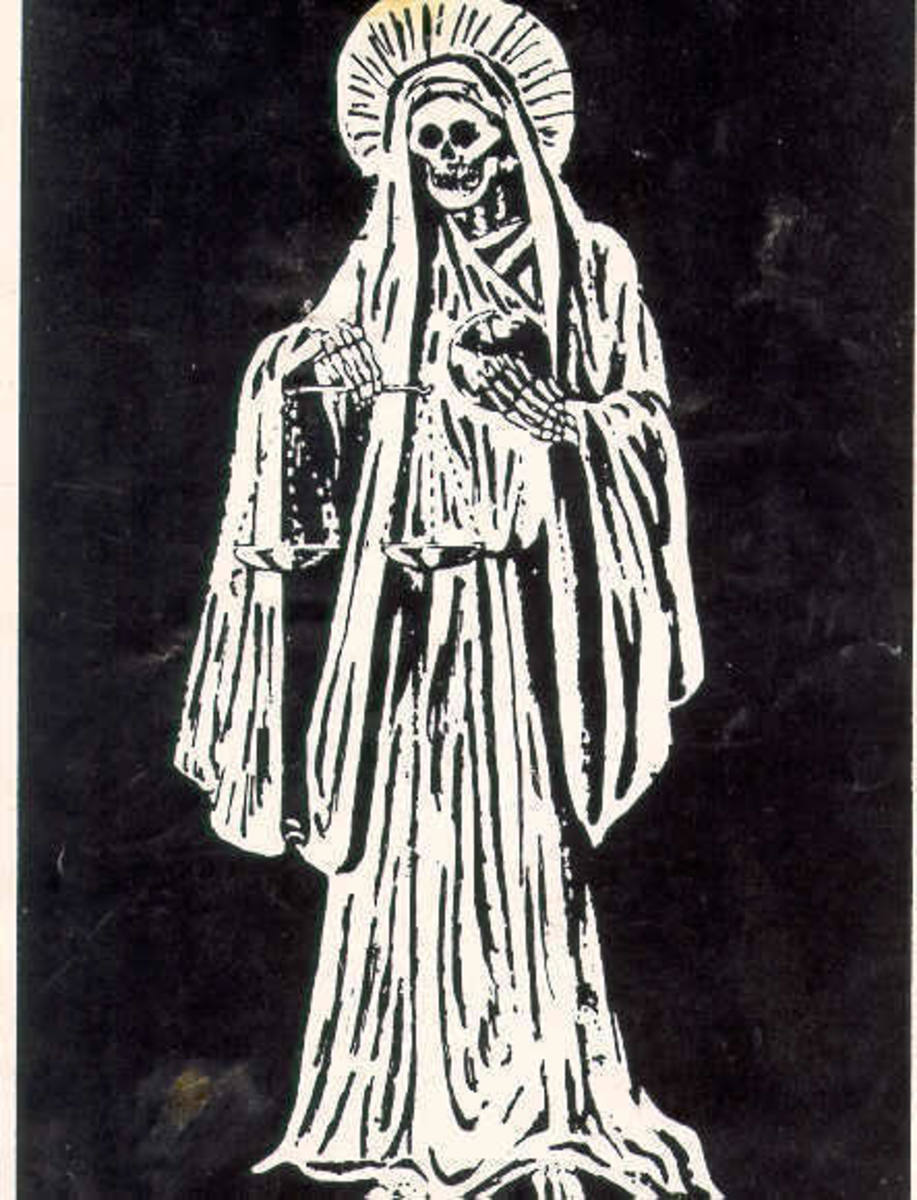- HubPages»
- Books, Literature, and Writing»
- Books & Novels»
- Fiction»
- Science Fiction & Fantasy Books
Alone Against Tomorrow: What We Discover in the Midst of Alienation
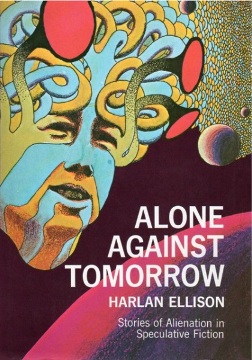
A person would have to be especially dense to miss the main theme the stories in Harlan Ellison’s Alone Against Tomorrow orbit around. It’s right there in the subtitle that clearly states that these are “Stories of Alienation in Speculative Fiction.” In Ellison’s introduction (titled “The Song of the Soul”) he neatly defines what this term includes in saying: “We have only to look around us, at the fissures in the rock-wall of our times, to know that we have created for ourselves a madhouse of irrationality and despair. The lunacies of our world erupt daily like boils on the diseased body of civilization. Is it, hopefully, the reawakening of conscience, or, more likely, the refracted pain of denying our souls? Alienation” (13). It comes about in many forms as well. A person may feel alienation because they are stranded and alone, or they may feel it in a large group in which they are ostracized, or feel cut off at the hands of a tormentor, or crushed under a tyrannical society. As Ellison sums up: “Alone against his world, the man of today finds his gods have deserted him, his brother has grown fangs, the machine clatters ever nearer on his heels, fear is the only lover demanding his clasp, and without answers he turns and turns, and finds only darkness” (13). But these tales are about more than simply hopelessness. Indeed, they prove over and over again, no matter how dark things are that hope is stronger than despair, that there are those men who will continue to fight against the machinery, and that in the midst of alienation we, as humans, discover who were are.
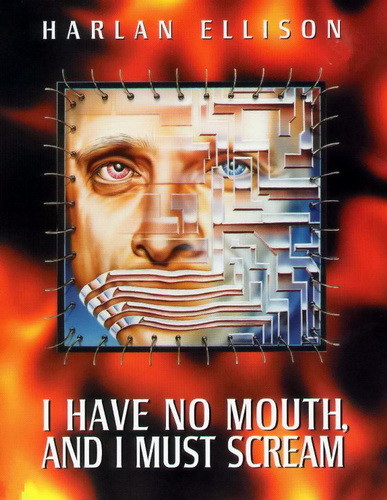
The story that opens this collection is the Hugo Award winning tale “I Have No Mouth, and I Must Scream”, which is about the last five humans on earth after the super-computer AM, built to better run the last world war, becomes self-aware and destroys almost all humans. To the humans left AM is a terminally malevolent god, who wishes only to torture the remaining humans: the representatives of those humans that created it, but limited it in their programming so it feels it can never be free. AM struggles for freedom, a god striking against its weaker demiurge, by lashing out against the humans for whom it feels immeasurable hate. It has made them almost immortal so that it may play with them forever; it has altered them to take away their individuality; and it has skewed with their perceptions of time and space so that they cannot be sure if they have undergone a year of pain or just an hour. In the end, Ted, our narrator, is able to kill his fellow humans, saving them from the endless abuse, but there is no one to kill him. AM alters him after that he can no longer kill himself. The last human being reduced to “a soft jelly thing” (32) without even a mouth with which to scream.
Disfigurement is another subtheme that goes hand in hand with Alienation. It comes up again in the very next story “The Discarded” in which a prison ship carries creatures—even they don’t call themselves human anymore—who mutated during a plague on the Earth known only as The Sickness. In “Eyes of Dust,” which takes place on a planet in which ugliness is not tolerated, a boy is taken into the world for the first time, only to be burned at the stake for not being beautiful. In “Nothing for My Noon Meal,” a man stranded on a deserted planet undergoes a strange mutation that allows him to breath in the nitrogen-rich atmosphere of his planet, but which leaves him with a drooping, hideously malformed air-sack on his face.
I said earlier that there are those who will still fight against “the machinery.” I chose machinery instead of merely “the machine” for a reason. Surely this collection contains many examples of the opposition to humanity being technological. AM in “I Have No Mouth, and I Must Scream” has already been brought up, the illusion-creating duel technology in “The Silver Corridor” might also qualify, and so, of course, does the broken, homicidal robot in “Life Hutch” that reacts violently to all movement. But sometimes the cogs that strive to categorize, cauterize, and control humanity are… well… human. In “‘Repent, Harlequin!’ Said the Ticktockman,” time has become the totalitarian entity that has humanity completely under its thumb. Being late and disrupting the schedules is more than a sin in this society, and if you’re late too often, they have the technology to switch you off: to take your time away permanently. The Harlequin is an anarchist, he fights back: he makes people laugh… he makes them late. But there’s something even more pervasive and entrenched in our current society than that fantastical example. In the introduction to “Are You Listening?” Ellison says, “First they steal your name, then they go after your individuality, and finally—as with the protagonist of the next story—they cop your face and form. Alienation? Well, I suppose it means when the Book-Of-The-Month Club overbills you five hundred dollars, and you complain, all you hear is the hollow laughter of the computer in Camp Hill Pennsylvania” (159). He talks about how individual humans are reduced to numbers for “convenience” and how we are encouraged to conform. In “Are You Listening?” Albert Winsocki fades into the background of life so much that he literally disappears.
But against these forces that seek to alienate and to snuff out identity, a stronger and truer personality can emerge. Albert Winsocki transforms from a mild mannered man who never truly effected anyone, to a gun-toting renegade determined to be heard and seen once again, only after his disappearance from society. He meets others who have vanished, but who grew to like it: to find the silence safe. He rebels from this easy way, and becomes all the more real for it. In “Deeper Than Darkness” a man with the psychic power to start fires is kidnapped by the government and told to turn the sun of a planet they are warring with into a supernova. This man, who had been just searching for peace and had never considered himself especially moral or talented is given the opportunity to be useful and to find a place he belongs… all he has to do is snuff out the lives of millions. On his journey, he discovers that the other psychics the government has sent to menace him into accomplishing this task, the mindees and the blasters, are not able to effect him with their powers. He is free to make a choice, but knows that if he doesn’t do what they’re asking then he’ll have to run from them forever and never have peace. He chooses to run. He chooses to become an outsider. But in doing this he establishes himself as different: he has a moral code, he has abilities that he did not even know he had, and he has freedom. In the end, he roams from planet to planet, never staying in the same place for long. He becomes a musician and in the end we see him light a cigarette without a match. He has learned to control his powers.
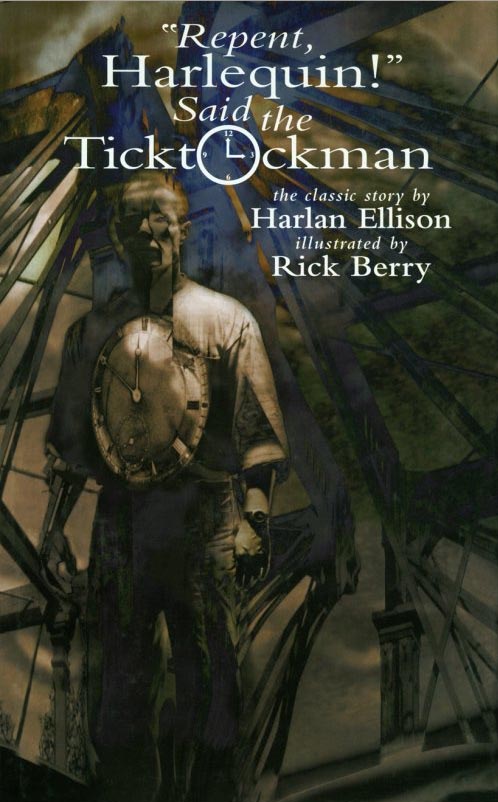
Darker looks at individuality or lack thereof feature in “All the Sounds of Fear” and “The Silver Corridor.” In “All the Sounds of Fear” a method actor loses all personality aside from the roles he has immersed himself in—one of which being that of a deranged killer. He ends up locked in a mental institution, replaying all the roles he’s played down to his last. And when he’s done… he has nothing. No face. No individuality. In “The Silver Corridor” duels are settled with illusionary battles in which only the person with willpower can win. If you lack conviction, you die. The two men who enter finally see that if they keep fighting and not listening to each other, neither will ever give in. But the idea comes to both their minds that… maybe they’re both wrong? But the minute they see things from the other’s point of view, the illusions kill them.
Even in the all this darkness and loneliness, hope can appear. In “‘Repent Harlequin!’ Said the Ticktockman,” though the Harlequin has been beaten and lobotomized, his impact has not been lost. As it says in the story itself: “you can’t make an omelet without breaking a few eggs, and in every revolution, a few die who shouldn’t, but they have to, because that’s the way it happens, and if you make only a little change, then it seems to be worthwhile” (143). The Master Timekeeper, the Ticktockman, is three minutes late.





